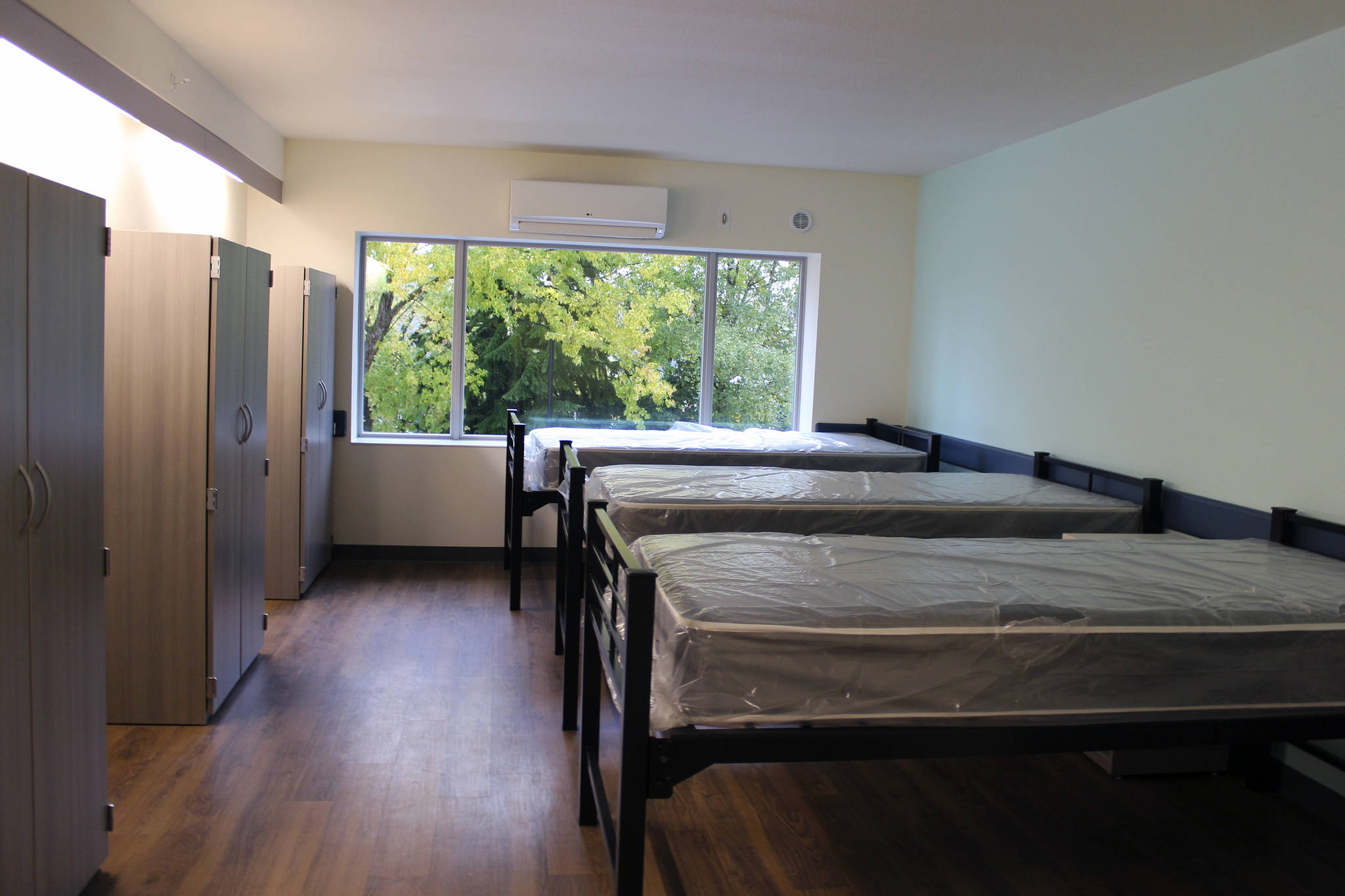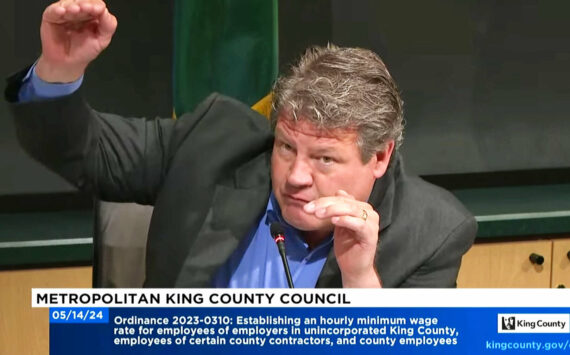King County Council Vice Chair Rod Dembowski has been looking for ways to improve the county’s juvenile justice system for a while now. And when, in early 2016, he saw former President Barack Obama’s op-ed in the Washington Post on the issue of solitary confinement—followed by Obama’s decision to ban solitary for teenagers in federal prisons—he asked county staff to let him know if youth isolation ever happened here. According to what he was told at the time, he didn’t think it did.
“I asked and I was led to believe that we didn’t do that for young people,” Dembowski says now. So he was stunned when, last week, the nonprofit firm Columbia Legal Services (CLS) filed a lawsuit against King County, alleging that some teens being tried as adults and thus housed at the Maleng Regional Justice Center (RJC) in Kent are held in solitary confinement for months. Sometimes, according to the suit, they’re only let out of a tiny, windowless cell for 15 minutes every few days.
“I was surprised when Columbia filed the lawsuit, and, frankly, angered by it,” Dembowski says. Not because the county was getting sued, he says, but because “it appears we are doing it after I’d asked, you know?” Research shows that solitary confinement has an even more devastating effect on the teenage brain than on an adult’s. And long-term isolation is not a practice that happens at the Youth Services Center, the juvenile detention center currently operating on East Alder Street, according to CLS’ year-long investigation into the practice at both facilities.
And so, on Thursday, Dembowski introduced legislation—likely to be reviewed and referred to the Council’s Law and Justice Committee on Monday—that would ban solitary confinement for minors in King County, full stop. Some parts of the CLS complaint, he says, stuck with him. Kids being held in solitary for so long—no matter what, “That’s not OK,” he says. Yet “there’s nothing in the law [in King County] that says ‘don’t do this.’ … I don’t know, this seems to me like a no-brainer. The UN says we shouldn’t do it, the American Academy of Child and Adolescent Psychiatry says we shouldn’t do it, the Obama administration, the Department of Justice … We just shouldn’t be doing it.”
As if on cue, also on Thursday, King County Executive Dow Constantine signed an executive order to move all youth incarcerated at the RJC to the Youth Services Center as soon “as logistics allow.” The reason, according to a news release issued on Nov. 2 from the Executive Office, is because the Youth Services Center is “a facility in Seattle better able to offer age-appropriate programs and services.” (One of the complaints in the lawsuit filed last week is that youth at the RJC have limited access to education, something that Dembowski’s legislation also aims to address.)
According to the release, as of Oct. 26, five youth housed at the RJC were moved to the Youth Services Center, and 15 remain at the RJC. The order stipulates that there will no longer be any teenagers housed at the RJC as of March 1, 2018 “except under emergency situations.”
“This is just one reform of many, including creating more alternatives to detention and investing in the resolution of family challenges,” said Constantine in a statement. “As our work continues, we will do everything we can to help young people overcome the struggles of adolescence and the burdens of history.”
The news release does not state that this executive order came as a result of the lawsuit filed last week—“we are not admitting anything with regard to the lawsuit,” it says—but it does concede that “the recent lawsuit … has highlighted what we have known: there is a difference in services provided to juveniles housed at the Maleng Regional Justice Center relative to the Youth Services Center.”
In response, Columbia Legal Services issued its own statement. Constantine’s executive order “in effect concedes, as it must, the allegations these parents and their children have made are true,” it reads. But “the announcement, while a step in the right direction, nonetheless does not address major flaws in the way that King County continues to treat children caught up in the criminal justice system.”
The statement goes on to note that there are still teens who are held in islation at the RJC right now, and while it seems that there have been some changes to the practice in recent weeks (some teens are alone in their cells for 21 hours a day, for instance, instead of 23 or more), “the County has not committed to changing how it uses isolation against children at the RJC even though under its announced plan, children will be held at the adult jail for many more months.”
According to the Executive Office’s news release, the county is committed to an ultimate goal of zero youth detention, and lists a number of parallel efforts, including diversion, intervention, and restorative justice programs.
Dembowksi, meanwhile, is hoping to move ahead with his legislation. It will probably need amendments, he says, and will likely be changed over time. “But the core principle of saying, ‘We’re going to put into law that we’re not going to have solitary confinement for young people,’ that’s the main thrust, as well as providing young people with age-appropriate services—education, mental health support, things like that.”
He stresses the importance of rehabilitation in the criminal justice system, and how crucial it is, especially for teens. “It seems to me that we should take particular care to make sure we’re not treating them as throwaway people. … The fact that we apparently haven’t banned [solitary], but can do so, just led me to say, ‘Well, let’s introduce legislation to see if we can’t get that done.’”
news@seattleweekly.com








